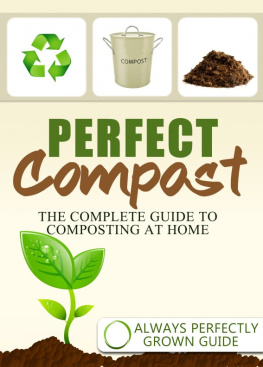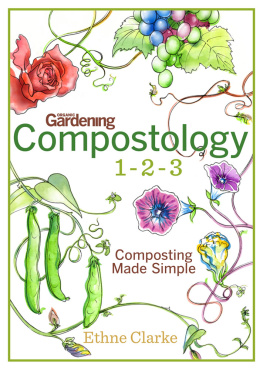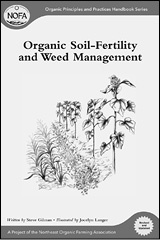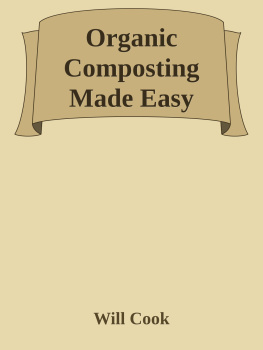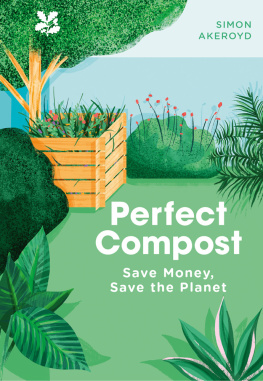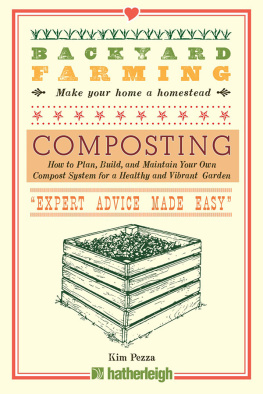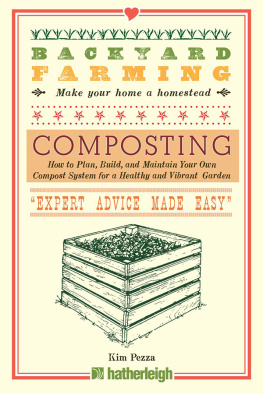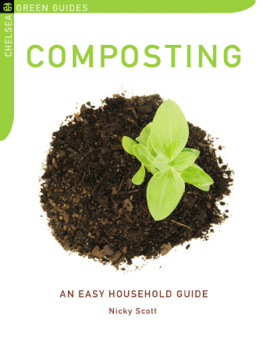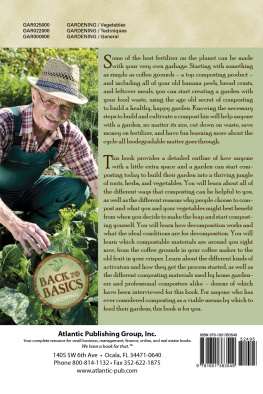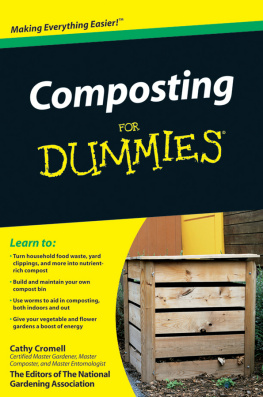

The Secret Life of Compost
A Guide to Static-Pile Composting
Lawn, Garden, Feedlot or Farm
Copyright 1997 by Malcolm Beck
All rights reserved. No part of this book may be used or reproduced without written permission except in cases of brief quotations embodied in articles and books.
The information in this book is true and complete to the best of our knowledge. All recommendations are made without guarantee on the part of the author and Acres U.S.A. The author and publisher disclaim any liability in connection with the use or misuse of this information.
Acres U.S.A.
P.O. Box 301209
Austin, Texas 78703 U.S.A.
(512) 892-4400 fax (512) 892-4448
Printed in the United States of America
Beck, Malcolm, 1936
The secret life of compost: a guide to static-pile composting lawn, garden, feedlot or farm / Malcolm Beck.
x, 174 pp., 23cm.
Includes index.
ISBN 978-0-911311-52-5
1. Compost I. Title.
Library of Congress Catalog Card Number: 96-85733
Dedication
When I think back on all the work my family did to keep the farm and later the compost business going while I was off railroading, this book must be dedicated to my wife and five children.
My two oldest sons, Clayton and Malcolm John, hauled loads and loads of manure, waste hay and stable bedding from around the neighborhood, and they loaded it all by hand using ten-prong forks. They did get paid a small amount per load, but I think it was the excitement of getting to drive the trucks by themselves while most of their peers couldnt yet drive. The boys used old 3/4-ton pickup trucks with sideboards that could hold four cubic yards. On Saturdays they would make as many as 13 loads each.
When my two younger sons Robert and Russell were big enough to reach the pedals, we already had tractors with power steering and large dump trucks. The problem wasnt getting the boys to work, but keeping them out of the trucks and off the tractors so they could do their school homework.
Our youngest and only girl, Kay, followed her brothers in almost every respect and grew up pretty tough. However, she did mature into a beautiful young lady with an artistic touch, finally giving our business a little class.
And my dear wife, Delphine: to me she is wife, mate, best friend and business partner. To all the family including daughters-in-law, son-in-law, nephew and all the other loyal employees she plays the role of mother, grandmother, counselor, judge, jury, doctor, nurse and boss. And with all of that she still does her own housekeeping, cooking, and much of her gardening. Needless to say, without her there would never have been a Garden-Ville Organic Farm or Garden-Ville Compost Co.
My family is more than just help, they are also a source of inspiration. But the fires of inspiration were first started by J.I. Rodale and his publication Organic Gardening and Farming. Then it was Del Weniger, the great teacher and naturalist that was always there to answer or find answers to my many questions. Del was my mentor.
The fuel to continually keep the fires of inspiration burning has been supplied by Charles Walters, the many books he has authored and co-authored, his monthly publication, Acres U.S.A., and, finally, his agreeing to share a little of his vast knowledge and wisdom in this book.
Contents
In the midst of what we call our progress an occasional person has the genius to combine solid ecological knowledge with technical skill and to apply the results with good common sense. We probably owe it to these persons that we are still here.
In the areas of soil building and maintenance and of the recycling of organic wastes, one of these leaders is Malcolm Beck, the author of this book. He has spent almost a lifetime in the study, experiment and practice which equip an inventive spirit to create new systems solving both old and new problems with our soils and our refuse.
Malcolm owned and ran Garden-Ville, a successful organic farm with its own marketing center, for decades. I enjoyed many delicious morsels from his fields. During all that time he conducted his own research on organic growing techniques, lectured widely on his discoveries in managing plants and soils, and published a book on insects in the organic garden. Gradually his interest focused on how to achieve and permanently maintain the finest soil quality. Soon that led him into much experimentation with composting. When he had applied much of the science and was well on the way to mastering the art of composting, we were all after him for his compost. He gave it to us until, in self defense, he had to start selling it.
Before long Malcolm had prepared a lot just for composting, and soon he was collecting the refuse from the stables, tree-trimmers and such, all around San Antonio in order to meet the demand for his compost. All the while he was studying about soils, experimenting with mixes, and designing bigger and better mixing machines. Nurserymen began to learn how great the soil mixes he was producing were, and soon he had a big business on his hands. I can remember when he had to begin importing bat guano from Mexico to meet the demand, as trucks which brought plants from California began to carry loads of his soil mixes all the way back to their growers out there.
Now his business in composting and selling soil mixes is so successful that it keeps a whole fleet of trucks on the roads and enriches countless flower pots, gardens, and whole fields. But Malcolm is not sitting back as a satisfied CEO. He is still studying, experimenting, and applying what he is learning. Beyond that, he has taken time to write down for all of us much of what he has learned about composting. So with this book any of us can do our own composting, grow better plants, or go into competition with him because hes telling us his composting secrets!
Del Weniger
Professor Emeritus of Biology
Our Lady of the Lake University
The beautiful planet on which we live is no more than a floating speck in the planetary system, one that is swung on a gravitational string in a 300-million-mile orbit around a nebular sun. It wobbles slightly on its axis so that on June 21 in our northern hemisphere summer arrives, plants grow and food is produced.
This little fleck of dust in the universe we romantically call Spaceship Earth is approximately 8,000 miles in diameter, 25,000 miles in circumference, and spins on its axis at over 1,000 miles an hour completing its rotation in 24 hours, giving each spot an equal amount of daylight and darkness.
Water covers 74% of this Earth. Only 20% is dry land. Out of this 20%, only 8% constitutes farm land, and only 3% is suitable for crop production.
Most of the passengers on Spaceship Earth are crowded into the seven breadbaskets of the world, half in Asia and the South Pacific, a fourth in Europe and Africa, and a sixth in North and South America.
In the United States this amounts to not even an acre per capita.
The great Greek philosopher Socrates called Planet Earth a gigantic organism, a concept Malcolm Beck expands upon in hauntingly beautiful epic style.
There is no pretentious prose in Becks little opus: there is simply a humble recognition that a minuscule part does not command the organism, and that no one born of woman is smart enough to redesign nature. This harsh assessment comes terribly close to saying that modern agriculture is really not worth saving.
Next page

